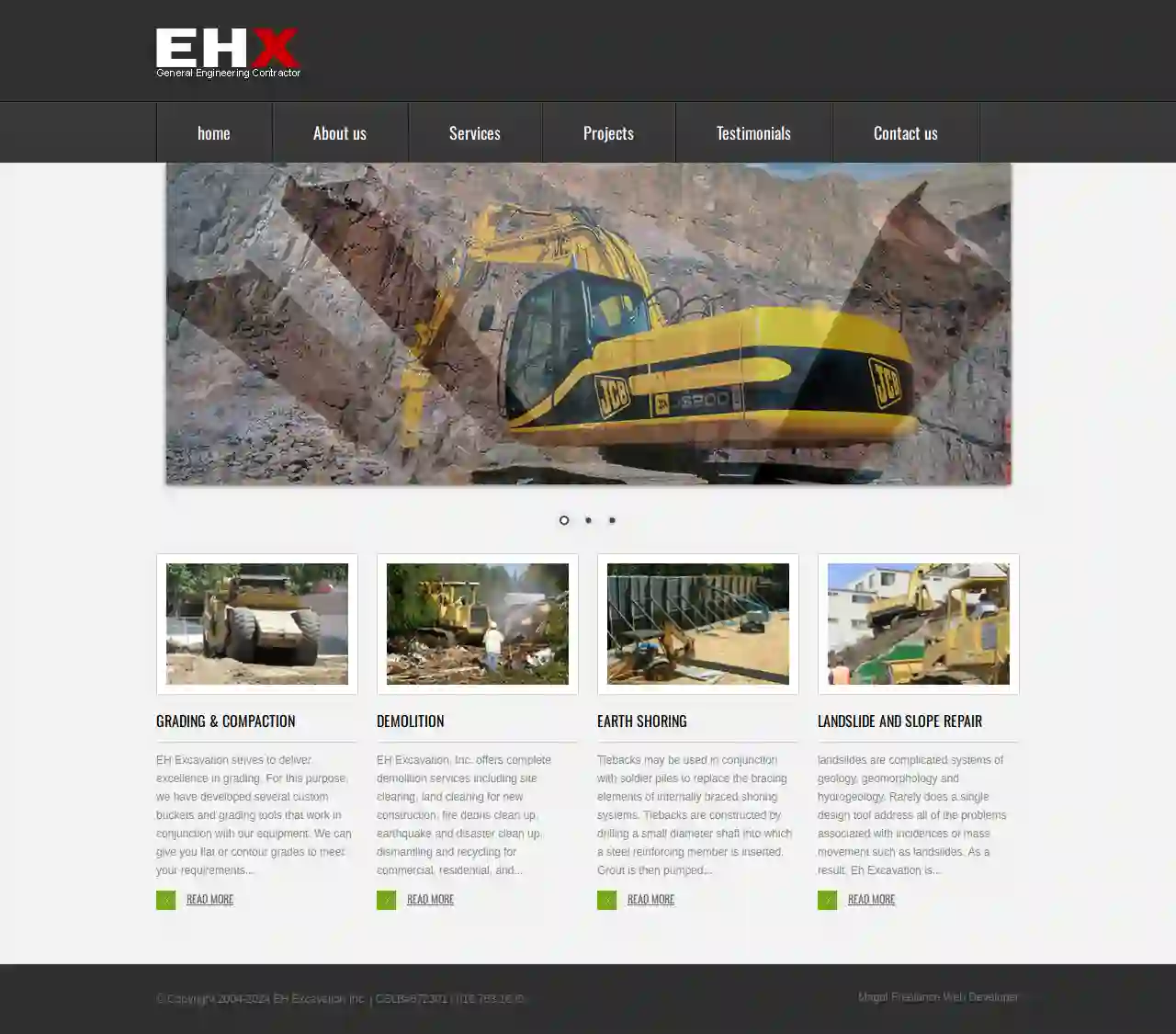Demolition Contractors Glendale
Best Demolition Companies in Glendale
Get up to 3 Demolition Contractors quotes for your project today! Compare profiles, reviews, accreditations, portfolio, etc... and choose the best deal.

EH Excavation, Inc.
1Glendale, USEH Excavation: Your Trusted Partner for Grading, Demolition, and More EH Excavation is a leading provider of grading, demolition, and earth shoring services in Los Angeles. We are committed to delivering excellence in all our projects, utilizing our expertise and state-of-the-art equipment to meet your specific needs. Our team of experienced professionals is dedicated to providing high-quality services with a focus on safety, efficiency, and customer satisfaction. We understand that every project is unique, and we take a personalized approach to ensure that your goals are met. Whether you need a flat or contour grade, site clearing, or landslide repair, we have the skills and resources to handle it all. We are also committed to sustainable practices and strive to minimize our environmental impact. At EH Excavation, we believe in building strong relationships with our clients. We are dedicated to providing clear communication, transparent pricing, and exceptional customer service throughout the entire project lifecycle. Contact us today to discuss your project and learn how we can help you achieve your goals.
- Services
- Why Us?
- Gallery
Get Quote
Over 3,943+ Excavation Companies on our platform
Our excavation pros operate in Glendale and beyond!
ExcavationHQ has curated and vetted the Best Excavation Contractors near Glendale. Find the most trustworthy pro today.
Frequently Asked Questions About Demolition Contractors
- Size and Complexity of the Structure: Larger and more complex structures, such as multi-story buildings, require more time, labor, and specialized equipment, increasing costs.
- Type of Demolition: Different demolition methods, such as implosion, wrecking ball, or high-reach demolition, have varying costs.
- Material Disposal: Disposal fees for demolition debris can contribute significantly to the overall cost, depending on the type and quantity of materials.
- Location and Accessibility: Demolition in densely populated areas or with limited access may require more planning and specialized equipment, affecting costs.
- Hazardous Materials: The presence of asbestos, lead paint, or other hazardous materials requires specialized removal and disposal procedures, adding to the expenses.
- Waste Generation: Demolition generates a large volume of debris, contributing to landfill space and potentially releasing harmful substances into the environment if not disposed of properly.
- Air Pollution: Dust and particulate matter released during demolition can impact air quality, affecting human health and the environment.
- Noise Pollution: Demolition activities can generate significant noise, disturbing nearby residents and wildlife.
- Resource Depletion: Demolition consumes resources that could be salvaged and reused, contributing to resource depletion and environmental degradation.
How much does demolition cost in the USA?
How do I find demolition contractors near me?
How can I tell if my building contains asbestos?
What are the environmental impacts of demolition?
How much does demolition cost in the USA?
- Size and Complexity of the Structure: Larger and more complex structures, such as multi-story buildings, require more time, labor, and specialized equipment, increasing costs.
- Type of Demolition: Different demolition methods, such as implosion, wrecking ball, or high-reach demolition, have varying costs.
- Material Disposal: Disposal fees for demolition debris can contribute significantly to the overall cost, depending on the type and quantity of materials.
- Location and Accessibility: Demolition in densely populated areas or with limited access may require more planning and specialized equipment, affecting costs.
- Hazardous Materials: The presence of asbestos, lead paint, or other hazardous materials requires specialized removal and disposal procedures, adding to the expenses.
How do I find demolition contractors near me?
How can I tell if my building contains asbestos?
What are the environmental impacts of demolition?
- Waste Generation: Demolition generates a large volume of debris, contributing to landfill space and potentially releasing harmful substances into the environment if not disposed of properly.
- Air Pollution: Dust and particulate matter released during demolition can impact air quality, affecting human health and the environment.
- Noise Pollution: Demolition activities can generate significant noise, disturbing nearby residents and wildlife.
- Resource Depletion: Demolition consumes resources that could be salvaged and reused, contributing to resource depletion and environmental degradation.